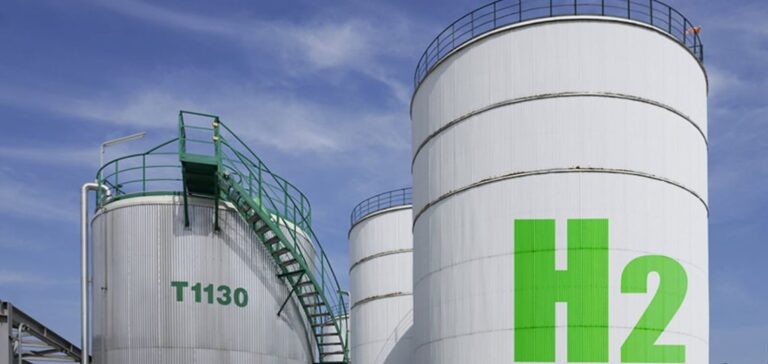The UK government has published details of its Low Carbon Hydrogen Agreement (LCHA), the contract that underpins its low-carbon business model, supporting electrolytic production and carbon capture of the energy carrier.
Low Carbon Hydrogen: The LCHA Business Model to Reduce Costs
The business model will provide support to hydrogen producers, bridging the gap in operating costs between low-carbon and higher-carbon fuels through 15-year contracts, the UK’s Department for Energy Security and Carbon Neutrality (DESNZ) said on its website on August 9.
“The LCHA is the contract by which the commercial model of hydrogen production will be delivered,” DESNZ said in an email on August 9
“The publication of the LCHA will enable us to make progress towards negotiations on the first round of electrolytic hydrogen allocation (HAR1) and the first two CCUS hydrogen production projects shortlisted by the cluster sequencing process.”
“The private law contract will be between a government-designated counterparty and a hydrogen producer, with an economic model designed to encourage investment in low-carbon production and use,” he added.
The ACHT means that the government can move ahead with negotiations on the allocation of funds to the first electrolytic hydrogen projects and the first two hydrogen production projects. As part of its industrial cluster sequencing process, HyNet in the North West of the UK, and the East Coast cluster focused on Humberside and Teesside.
“These projects will be key to achieving our goal of 10 GW of hydrogen production capacity by 2030,” said DESNZ.
ACHT : Crucial support for the UK Hydrogen Strategy
Half of the UK’s target is to come from electrolytic hydrogen. The ACHT was the missing piece in the UK hydrogen policy space, following the publication of the country’s updated hydrogen strategy on August 2. It is based on the heads of terms for the low-carbon hydrogen production operating model published in December 2022.
Modelled on contracts for difference, used in renewable energy production, the ACHC subsidy will pay the difference between a low-carbon hydrogen sales price and a strike price, with the price of natural gas setting a floor. The strike price is the unit price a low-carbon hydrogen producer needs to cover its production costs, plus an “allowed return on investment.”
“The level and specific components of the strike price and cost components will be negotiated on a project-by-project basis”, and are likely to vary between different production technology routes, DNZES said.
Platts, part of S&P Global Commodity Insights, estimated the cost of producing hydrogen by alkaline electrolysis in the UK (including capital expenditure) at GB5.54/kg ($7.06/kg) on August 9, based on grid electricity prices a month ahead.
Launch of the First Allocation Cycle: LCHA for Electrolytic Hydrogen
Proton exchange membrane electrolysis production was valued at GBP6.48/kg, while blue hydrogen production by autothermal reforming was GBP3.72/kg (including capital expenditure, CCS and carbon). The terms also include rules for hydrogen production by carbon capture in the event that a carbon storage facility is out of action, or if CO2 emissions from a plant become unavoidable.
In such circumstances, a waiver will apply, but the producer must pay an amount to the ACHC counterparty, based on a calculation formula. The ACHT counterparty has the right to terminate contracts if the carbon capture and storage facility is not available for an extended period. Hydrogen UK said the LCHA would give the nascent industry a boost, but warned that greater consideration of intermediary companies is needed to develop a liquid market for hydrogen.
“This is an important milestone for the UK hydrogen industry, which will launch a series of hydrogen projects as part of the first electrolytic hydrogen allocation round,” Jamie Mitchell, senior economist at Hydrogen UK, told S&P Global Commodity Insights by e-mail.
“Looking ahead, we need to look more closely at the role of risk-taking intermediaries, as current contract provisions are insufficient for the development of a liquid hydrogen market.”
The UK government has stated that “risk-taking intermediaries should not benefit directly from ACHT support”, to ensure that the system offers value for money.
An example of a risk-taking intermediary is a trading company receiving hydrogen from a production facility for storage and resale to third parties. Other buyers not eligible under the ACHC include hydrogen exporters and companies that blend volumes of purchased hydrogen into the natural gas network.






















